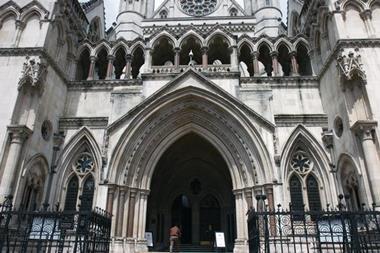DWF says Health and Safety Commission guidelines although voluntary could be viewed as a legal document by inspectors
New guidance designed to help directors understand their health and safety obligations could potentially be used as evidence against them in inspections or prosecutions, warns law firm DWF.
The guidance, published yesterday by the Health and Safety Commission (HSC) and the Institute of Directors (IoD), covers not only companies but also schools, charities and hospitals and aims to help prevent avoidable deaths.
However Steffan Groch, health and safety partner at DWF, said that the guidance, although voluntary, will be viewed as a legal document by Health & Safety Executive (HSE) inspectors and directors who fail to follow it could face prosecution.
The guidance makes it clear to organisations that there must be strong and active commitment to health and safety from the top. They are expected to engage the workforce in the promoting safer working conditions and also ensure they identify, manage and review risks on a regular basis.
Steffan Groch said: “Directors should make sure that they read and follow the guidance. They should now review the organisation’s safety management systems and revisit their contracts of employment. If necessary, they should seek external advice and undertake sufficient training to be able to discharge their responsibilities effectively.
“Where responsibilities are delegated, there must be proper reporting and those responsible should be held to account. The board should receive regular information about health and safety and conduct a full review at least once a year. Directors should also look at key suppliers and others whose performance could adversely affect the company.”
The publication of the guidance also comes in the run-up to the introduction of the new Corporate Manslaughter Act in April 2008. Steffan Groch warns that the conduct of ‘senior management’ is a key element of the new offence and the directors' guidance may be considered relevant by a court in assessing the evidence.
He added: “It has been made clear that the guidance will be regarded as a legal document by HSE inspectors in inspection and enforcement activities. Although the guidance is not a new law in itself, breach of it can be used as evidence in criminal proceedings under the existing legislation.
“It is ironic that something that has been produced for the benefit of directors could potentially be used against them should they face a prosecution. Our concern is that it may be used as a template as to how directors will be interviewed under caution for an offence under the new Corporate Manslaughter Act.”




















No comments yet